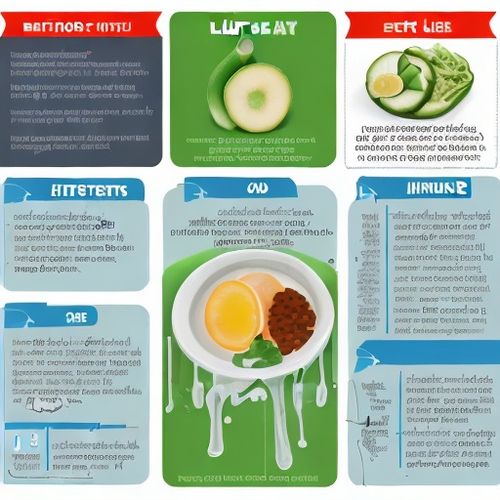The growing interest in functional foods has spurred a wave of clinical research aimed at validating their health benefits. Unlike conventional foods, functional foods are designed to provide physiological benefits beyond basic nutrition, often targeting specific health conditions or improving overall well-being. Clinical validation is crucial to substantiate these claims, ensuring that consumers and healthcare professionals can trust the efficacy and safety of these products. As the market expands, rigorous scientific studies become indispensable in separating evidence-based offerings from mere marketing hype.
The Importance of Clinical Trials in Functional Foods
Clinical trials serve as the gold standard for evaluating the health claims associated with functional foods. These studies are meticulously designed to assess the effects of bioactive compounds, probiotics, or fortified ingredients on human health. Unlike observational studies, randomized controlled trials (RCTs) provide a higher level of evidence by minimizing bias and confounding factors. For instance, a well-conducted RCT on a probiotic strain can demonstrate its ability to improve gut health or boost immunity, lending credibility to product labels.
The complexity of functional foods often necessitates long-term studies to observe sustained effects. Short-term trials may capture immediate outcomes, such as blood sugar regulation post-consumption of a fiber-rich functional food, but longer studies are needed to evaluate impacts on chronic conditions like diabetes or cardiovascular disease. Regulatory bodies, such as the FDA and EFSA, increasingly demand robust clinical data before approving health claims, making thorough research a non-negotiable aspect of product development.
Challenges in Designing Functional Food Trials
One of the primary hurdles in clinical validation is the variability in individual responses to functional foods. Genetic differences, gut microbiota composition, and lifestyle factors can influence how a person reacts to a specific ingredient. This heterogeneity makes it difficult to generalize results, even in well-controlled trials. Researchers must account for these variables through stratified sampling or personalized nutrition approaches, though this adds layers of complexity to study designs.
Another challenge lies in the placebo effect, particularly when testing functional foods with noticeable sensory attributes, such as energy-boosting beverages or cholesterol-lowering spreads. Blinding participants becomes tricky, potentially skewing results. Innovative trial designs, including crossover studies or the use of matched placebos, are often employed to mitigate these issues. Despite these efforts, the subjective nature of some health outcomes—like improved energy levels or mental clarity—can still introduce measurement bias.
Emerging Trends in Clinical Validation
Recent advancements in omics technologies—such as genomics, metabolomics, and proteomics—are revolutionizing how functional foods are studied. These tools enable researchers to uncover mechanistic insights at a molecular level, linking specific food components to physiological changes. For example, metabolomic profiling can reveal how a polyphenol-rich functional food alters metabolic pathways associated with inflammation, providing a deeper understanding of its health benefits.
Another trend is the rise of digital health tools in clinical trials. Wearable devices and mobile apps allow for real-time monitoring of participants’ vital signs, physical activity, and even dietary compliance. This not only enhances data accuracy but also facilitates remote trials, reducing participant burden and expanding the geographic scope of studies. As these technologies mature, they are expected to play an even greater role in functional food research.
Regulatory Landscape and Consumer Trust
The regulatory environment for functional foods varies widely across regions, impacting how clinical data is utilized. In the European Union, the EFSA requires stringent scientific substantiation for health claims, often mandating multiple RCTs. In contrast, the U.S. FDA adopts a more flexible approach, allowing qualified health claims based on emerging evidence. These differences influence how companies design their clinical trials and frame their marketing messages.
Consumer trust is another critical factor shaped by clinical validation. With growing skepticism around unsubstantiated health claims, transparency in research findings is paramount. Companies that publish their clinical data in peer-reviewed journals or collaborate with academic institutions tend to gain more credibility. Conversely, those relying solely on in-house studies or poorly designed trials risk damaging their reputation and facing regulatory backlash.
The Future of Functional Food Clinical Trials
As the functional food industry evolves, so too will the methodologies for clinical validation. Adaptive trial designs, which allow modifications based on interim results, are gaining traction for their efficiency and cost-effectiveness. Similarly, the integration of artificial intelligence in data analysis can identify patterns and predict outcomes faster than traditional statistical methods.
Personalized nutrition is another frontier poised to transform the sector. Future trials may focus on subgroup analyses to determine which populations benefit most from specific functional foods, paving the way for tailored recommendations. This shift aligns with the broader movement toward precision medicine, where individualized health interventions are becoming the norm.
The journey from lab to shelf for functional foods is fraught with scientific and regulatory challenges, but clinical validation remains the cornerstone of their success. By adhering to rigorous research standards and embracing innovative technologies, the industry can continue to deliver products that genuinely enhance health and wellness.

By Sarah Davis/May 19, 2025

By Natalie Campbell/May 19, 2025

By George Bailey/May 19, 2025

By Lily Simpson/May 19, 2025

By David Anderson/May 19, 2025

By Olivia Reed/May 19, 2025

By Amanda Phillips/May 19, 2025

By Sophia Lewis/May 19, 2025

By Olivia Reed/May 19, 2025

By Emily Johnson/May 19, 2025

By John Smith/May 18, 2025

By Eric Ward/May 18, 2025

By Jessica Lee/May 18, 2025

By Jessica Lee/May 18, 2025

By Sophia Lewis/May 18, 2025

By Rebecca Stewart/May 18, 2025

By Emily Johnson/May 18, 2025

By Rebecca Stewart/May 18, 2025

By Megan Clark/May 18, 2025

By Megan Clark/May 18, 2025